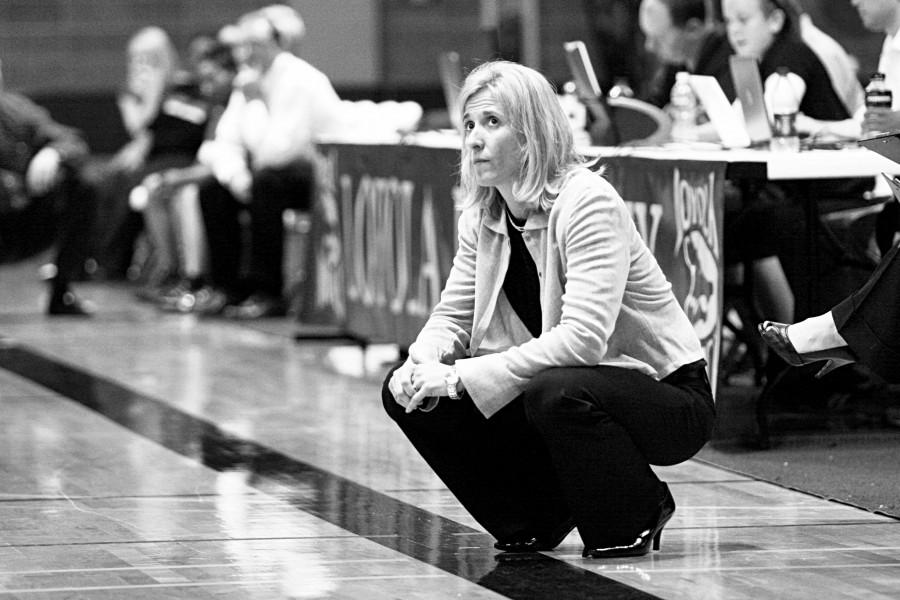Along with most teams in the Gulf Coast Athletic Conference, Loyola was forced to find another conference.
“It was something we had to do out of necessity, with other teams looking to make a move. Unless the remaining schools in the GCAC were going to do something, then all our sports weren’t going to be able to compete for championships,” Kellie Kennedy, head women’s basketball coach, said.
Loyola, along with Belhaven College, Spring Hill University, University of Mobile and William Carey University will move to the Southern States Athletic Conference. Truett-McConnell will also join them.
The move is set to begin in the fall 2010-2011 season.
“I think overall it’s going to be a positive move for us. It’s going to be a tough league. It’s going to be stronger competitively,” Kennedy said.
“The way it’s operated, with a full time commissioner, he’s able to get corporate sponsorships,” she said.
More sponsorships do not translate into more scholarships. According to Michael Giorlando, director of Athletics and Wellness, said the “athletic talent awards” will not change.
These additions will bring the SSAC membership to 16 schools, making it possible to organize it into two divisions with eight teams each. Loyola, along with Belhaven, Spring Hill, Mobile, Auburn University Montgomery and Faulkner University will make up the new division.
This expansion increases championship opportunities for the schools in 13 sports and insures automatic qualifiers for each.
The amount of teams in the SSAC will allow them to have at least one automatic bid for the National Association of Intercollegiate Athletics national tournament and multiple bids in most team sports.
This will give Loyola the opportunity to get more national exposure and attention.
“The ability to have, in basketball, a post season tournament, at a single site, where you are in a tournament atmosphere, it’s going to feel like a higher level,” she said.
According to her, this atmosphere will help Loyola feel more comfortable and play better when they go to the National Association of Intercollegiate Athletics national tournament.
This move also comes with a downside, according to Kennedy. As a part of the GCAC, Loyola does not have to travel as frequently, since some of the teams are in New Orleans.
“It’s going to be different for my team in terms of travel,” she said.
“For the first couple of years, we’re probably not going to have as many conference games as we do now, so we’re going to have to play more outside of our league,” Kennedy said.
This will increase Loyola’s exposure, according to Giorlando.
“It will give us more regional stature with our name being spread to the Georgia, Alabama and even South Carolina areas,” he said.
Loyola’s move is also a strategic one. They are trying to expand their athletics program, by adding women’s tennis for school year. This addition brings the school’s total number of sponsored varsity sports to 11. There are plans in place to bring men’s tennis for the 2010-2011 academic year.
Giorlando believes the SSAC will help Loyola move in the direction athletics wants and the school as a whole wants.
“It was the right fit for us philosophically and the school the direction is going with increasing programs, this conference gives us the best chance to field teams for conference championships,” he said.
Kennedy said that since they are moving with five other teams from the GCAC, they feel more confident in the move.
“That makes it better because there’s some level of comfort going as a group than if you were going about this by yourself, when you have no idea of what these other programs are like,” she said.
Kennedy is excited about the move and expects it to be more competitive, which will help all the teams.
She thinks the defending NAIA National Champions are “absolutely” ready for this challenge.
Players have also been weighing in on this.
“Every night in the GCAC, it was a great game, coming down to the last five minutes,” Ryan Brock, management junior, said.
“I just hope it’s the same intensity in the SSAC as well, because all it does is make our team better.”
Torry Beaulieu, history senior, said he is excited to see the team’s shifting conferences because they are moving up.
“Loyola’s gotten a lot better as far as competing with better teams,” he said.
“In some cases I believe we do get better when the pressure is on. Loyola basketball is only going to get better so this move is a good one.”
Eduardo Gonzalez can be reached at ejgonzal@loyno.edu






